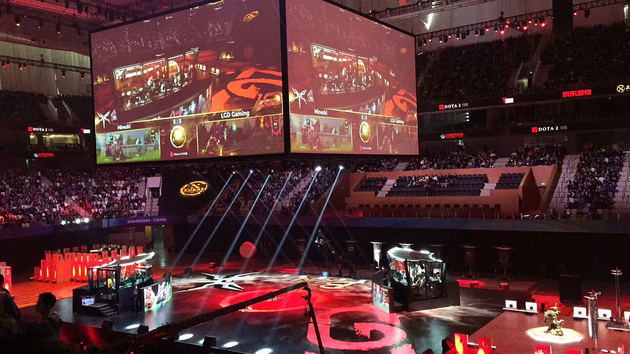
Photo/Zhang Yun
Mar. 18 (NBD) -- March has arrived, as has the enrollment period of junior colleges in China. Reporters found eSports is especially popular as a school has received over ten parents who consulted the major in merely a half day.
Cao Yongjun, director of the dean's office, Beijing Xinhua Computer School, said the school started offering eSports programs since the fall of 2017 with 22 students enrolled then. The figure grew to over 230 a year later and the number of applicants has already exceeded 50 in less than 20 days after the begin of this new semester.
It is noticed that eSports was enlisted as a major by China's Ministry of Education (MOE) in September 2016. Incomplete statistics show the number of schools which applied for the approval from China's educational regulator to set up an eSports-related major totaled 18 in 2017, which nearly tripled in 2018.
Despite its popularity, many parents still don't know what eSports is. Some simply equate it to game-playing and worry that their children may become addicted if without proper guidance.
As a matter of fact, the worries are ungrounded as eSports was enlisted as a sport by the General Administration of Sport of China as early as 2003 and eSports teams were established since ever.
Peng Yunfei, an 18-year-old known as 'Fly' in eSports club QG, has been in this field for five years. He noted that eSports players shouldn't be simply equated to gamers. A professional player has daily missions to complete, which is just as people do in other schools.
Tao Chuankai, a professional player at top eSports club EDG, noted that only interest is far from enough and the training process can be arduous, adding "we practice over ten hours a day with only one day off in a week. If the schedule is tight, we don't rest on weekends".
Professional eSports players have a very short career and most of them retire at about 25 years old. After the retirement, a majority of them are likely to be streamers or commentators or do other related jobs, Peng added.
Actually, due to a high threshold, most of eSports men will not become professional players, but serve the industry instead.
Chen Punuo, who has 8-year experience in a company that organizes eSports tournaments, said eSports servicing is not as cool as others might have seen on the screen and what they do is to support the proper operation of a match. For example, they stay overnight to watch foreign eSports events so as to study the whole process ranging from scenic design to matching process.
With the eSports segment growing, the demand for talents is increasing accordingly.
Xu Bang, who works in an eSports company, said that it would take two to three months to find 1-2 interviewees who applied for an eSports event director position three years ago. But now they can find several dozen in months.
Statistics show the market size of the eSports market was 8.48 billion yuan (1.3 billion U.S. dollars) last year and the size of the whole eSports industry chain will hit 21.1 billion yuan (3.1 billion U.S. dollars) by 2020.
However, the number of talents still falls short of demand arising from the fast industry growth. Currently, only 50,000 people are working in this sector with as high as 260,000 related job openings to be filled. By 2020, the gap will be widened to 500,000.
In industry insiders' eyes, the industry needs more supporting roles than professional players. Experts suggested that eSports education should focus on fostering more service-oriented talents.
Such talents should know a string of related jobs, including the management and operation of eSports events, battling strategies, and filming and streaming of such events, noted Jia Shushen, a member of the PE Teaching Advisory Committee of Higher Education under the MOE.
Email: tanyuhan@nbd.com.cn


 川公网安备 51019002001991号
川公网安备 51019002001991号





